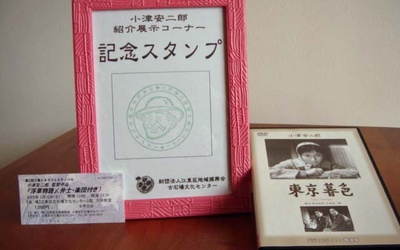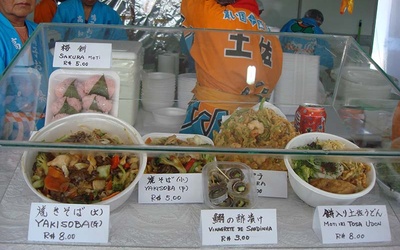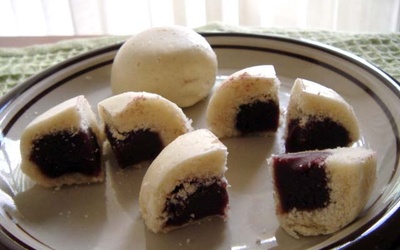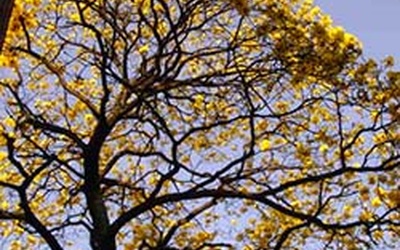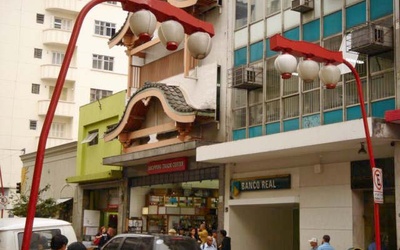OHAYO Bom dia
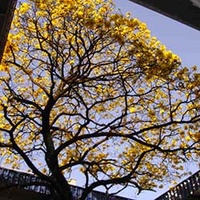
My grandfather immigrated to Brazil from Japan about 100 years ago, and I was born in Brazil. That is why I strive to become a ‘bridge’ between Brazil and Japan. I treasure the ‘Japan’ rooted deep in my heart, and I want to keep that part of me protected in my homeland of Brazil. This series was composed with those feelings in mind. (“Bom Dia” is “Good morning” in Portuguese)
Stories from this series
Chapter 10: Dreams of a Movie Girl
Sept. 21, 2011 • Laura Honda-Hasegawa
II was always hanging around my mom. When she was preparing meals, I was always peaking over the table asking, “What’s that?” From my earliest memories, I remember being intrigued by drawings I saw around the kitchen. Even now, I remember them clearly. The ones that were particularly appealing to me were the picture on the sardine cans and the drawing on the packs of oatmeal. It looked to me like the sardine was wearing glasses, so I told my …
Chapter 9: The World Has Really Changed
Sept. 14, 2011 • Laura Honda-Hasegawa
My mother likes feijoada, while my father likes bacalhoada. As for third-generation me, as a kid I liked natto. This is the first time I’ve said that. I’ve finally said what until now I’ve had to just keep to myself. Why? Because it’s only recently that Brazilians have become familiar with Japanese food culture. When I was in elementary and middle school in the 1960s, Japanese students were ridiculed and told “Japanese people eat raw fish and uncooked vegetables, right?” …
Chapter 8: The Taste of Manju
Sept. 7, 2011 • Laura Honda-Hasegawa
Round, and filled with that oh-so-sweet red bean paste. That’s the Japanese treat, manju . Brazilians know it as “doce de feijon ”. Here’s a story I heard from my mom. It was over 80 years ago. She was living in Shiteio at the time. One day, a customer from out of town visited. It was another Japanese-Brazilian, bearing an unusual gift: manju . The kids hung up the broom upside down behind the door. It was an old spell …
Chapter 7: Men Who Actually Love Dramas
Aug. 31, 2011 • Laura Honda-Hasegawa
“Boys don’t cry.” That’s the mantra for how boys are raised in Brazil. And when they become adults, they’re told “Housework is a woman’s job” and “Only women watch TV dramas,” putting even more pressure on men to shun household chores and dramas. However, that old stereotype has been changing recently, thanks to a certain program. The show is called, Winter Sonata (Fuyu no Sonata). With that as a catalyst, many things have been happening within the Japanese-Brazilian community. While …
Chapter 6: Liberdade
Aug. 24, 2011 • Laura Honda-Hasegawa
The Liberdade back then is like a completely different world to me now. It was 1964, and I had just transferred to Roosevelt High School.Classes went until 6:00pm, and the route home was through Liberdade’s main street, heading towards the bus terminal.To the students hurrying along wearing white and navy blue uniforms, it was like Urashimataro entering a strange new world. There’s the flicker of dazzling neon signs upon neon signs, and the many people coming in and out of …
Chapter 5: Saw it! I saw it, too!
Aug. 17, 2011 • Laura Honda-Hasegawa
Saw it! I saw it, too! Saw it. Of course, I saw it, too.My heart skipped a beat the moment they met.Like in a dream, taken to a place with gorgeous scenery.Introduced to surprisingly beautiful words, and comforted by a beautiful melody.Tears filled my eyes.It made me remember how wonderful friendship is. It made me miss people more than usual. I, too, fell in love at first sight—with Jun-Sang! Bingo! Yes, that’s it.It’s said that “Winter Sonata (Fuyu no sonata)”, …

